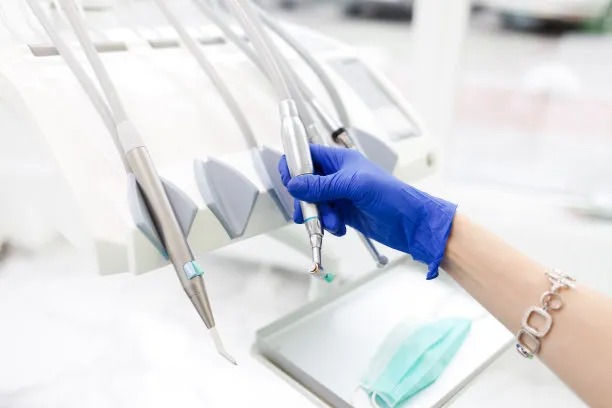Summary: This article delves into the essential process of tooth extraction, elucidating its significance in dental care and the overall wellbeing of patients. It explores the various reasons for tooth extractions, the procedure involved, post-extraction care, and the psychological impact on patients. By delineating these facets, the article aims to highlight how tooth extraction is not merely a dental procedure but a crucial component of dental health that contributes to the holistic wellbeing of individuals. Understanding these dimensions can empower patients to make informed decisions about their dental health.
1. Reasons for Tooth Extractions in Dental Care

Tooth extractions are often necessary due to a variety of dental issues. One primary reason is the presence of severe tooth decay that cannot be repaired with fillings or crowns. When decay has progressed to the point that the tooth is beyond saving, extraction becomes the most viable option to prevent further complications. This situation typically arises when a tooth has experienced significant structural damage, leading to infection.
Another common reason for tooth extraction is overcrowding. When there is insufficient space in the mouth for all the teeth, dentists may recommend the removal of certain teeth to facilitate proper alignment, especially before orthodontic treatments. This preventive measure helps in establishing a conducive environment for achieving optimal dental alignment and function.
2. The Tooth Extraction Procedure Explained
The extraction process typically begins with a thorough examination and imaging studies by the dentist to assess the tooths condition and surrounding structures. Once the decision to extract is made, the dentist will explain the procedure, addressing any questions the patient may have. Anesthesia is administered to ensure that the patient is comfortable and experiences minimal pain during the extraction.
There are two main types of tooth extractions: simple extractions and surgical extractions. Simple extractions are performed on teeth that are visible above the gum line, while surgical extractions are required for teeth that are not easily accessible, often necessitating an incision in the gum. Both procedures, although different in complexity, are typically performed in an outpatient setting.
3. Post-Extraction Care for Optimal Recovery
Post-extraction care is crucial for a successful recovery. Patients are advised to follow their dentists instructions meticulously to minimize complications. Initially, it is important to rest and avoid any strenuous activities to allow the body to heal. Proper oral hygiene should continue, but patients should be careful around the extraction site to prevent irritation.
Icing the area can help reduce swelling and manage pain in the early days post-surgery. Dentists often recommend over-the-counter pain relievers, or in some cases, prescribe medication to alleviate discomfort. Its essential to stay hydrated and maintain a soft diet to support the healing process.
Patients should also be aware of potential signs of complications, such as severe pain, prolonged swelling, or fever, and seek immediate dental advice if these symptoms arise. Understanding the importance of follow-up appointments is vital, as these visits allow the dentist to monitor the healing process and address any concerns.
4. Psychological Impact of Tooth Extractions
The psychological implications of tooth extractions can be significant. Many patients experience anxiety before and after the procedure, often stemming from fear of pain or concerns about their appearance. Understanding the extraction process and having open conversations with the dentist can help alleviate some of these fears.
Moreover, tooth extractions can lead to feelings of loss or worry about dental aesthetics. Patients may feel self-conscious about their smile, impacting their confidence. However, with modern dental solutions such as implants or bridges, dentists can help restore the patients smile and functionality, addressing both physical and emotional aspects of recovery.
Summary: Overall, the process of tooth extraction plays a vital role in dental care, encompassing various aspects from the reasons behind the need for extraction to the implications for patient wellbeing. Highlighting the procedure, post-extraction care, and the emotional dimensions allows for a comprehensive understanding of tooth extraction in the context of dental health. This article is compiled by Vickong Dental and the content is for reference only.
Vickong Dental
Vickong Dental is a large medical group established in Hong Kong in 2008 by professors from well-known medical universities in Guangdong and Hong Kong, as well as medical doctors from key national '985' universities (including Master's supervisors and senior professors). The chain of branches brings together expert dentists with PhDs and Master's degrees from Hong Kong and Mainland China, committed to providing high-quality dental treatment.
"Vickong Dental Practices the University Motto of 'Healing and Serving Society,' with a Stable Operation for Sixteen Years. It Has Been honored with Hong Kong Enterprise Leaders's Choice,' and is a Global Trusted Implant Center for the Nobel Implant System. Recommended by Hong Kong Metro Broadcast and Guangdong Television, it Serves Customers from Over Thirty Countries and Regions, Gaining the Trust and Favor of Citizens from the Guangdong-Hong Kong-Macau Greater Bay Area and Surrounding Cities.

Thousands of customers' unanimous praise
The most recognized and highly recommended dental service by customers in the Guangdong-Hong Kong-Macau Greater Bay Area
We Ensure You Receive Detailed Care and Attention Here
Hong Kong standards, Shenzhen prices, Your Trusted English-speaking dentists

Vickong Dental Medical-Grade Instrument Disinfection Process
Vickong Dental Medical-Grade Instrument Disinfection Process

Vickong Dental Chain: A Warm and Comfortable Environment for Treatment






Appointment Hours

Q&A
Why choose Vickong Dental?
Vickong Dental practices the university motto 「Medicine to Benefit Society」, with each branch bringing together highly qualified dentists with doctoral and master’s degrees from Hong Kong and the Mainland, and has maintained seventeen years of steady operation。Recipient of 「2024 Hong Kong Enterprise Leaders Brand」, 「2025 Hong Kong Enterprise Leaders Brand」, a Nobel Biocare Global Trusted Implant Center, and a brand recommended by Metro Radio Hong Kong and Guangdong TV。
To date, we have served customers from more than thirty countries and regions,earning exceptionally high word-of-mouth recognition and trusted recommendations from residents across the Guangdong-Hong Kong-Macao Greater Bay Area and surrounding cities
We have eight major branches in Zhuhai、Shenzhen,and a consultation and service assurance center in Hong Kong,so you can book a free consultation at any time for any questions,which is very reassuring.
If I do not accept the quotation after the CT scan, will I be charged??
No! As long as the actual treatment has not started, you will not be charged any fees.
Will there be any additional charges during the treatment process?
No, there won’t be any additional charges. Before treatment begins, we will clearly explain the treatment plan and its corresponding fees. Only after the patient agrees and signs the consent form will we proceed with the dental service.
Can I pay in Hong Kong dollars?
Yes. Vickong Dental accepts payment in Hong Kong dollars. The amount will be converted based on the exchange rate of the day, and the applicable rate will be clearly communicated to you in advance.
Can I reschedule my appointment at any time?
Yes. Please contact us via **WeChat** or **WhatsApp** as early as possible, providing your original appointment time and details, along with your preferred new date and time slot for rescheduling.













